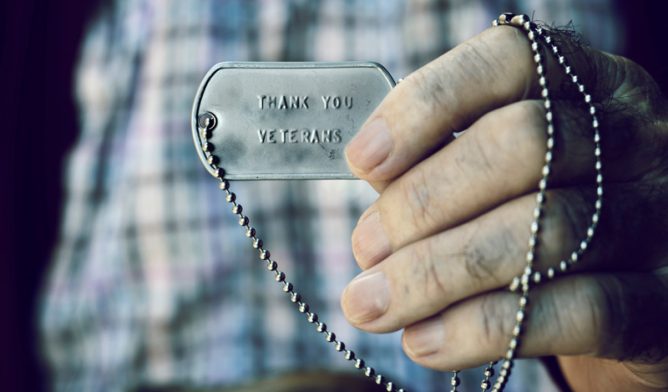Veterans Need to Speak Up About Military Asbestos Exposure
Veterans & MilitaryWritten by Aaron Munz | Edited By Walter Pacheco

As a veteran, I am acutely aware of the attention and appreciation we receive each year on November 11 when our country celebrates Veterans Day.
There are sales at big-box mattress stores and car dealerships. There are offers for free meals at restaurants and free admission to attractions.
The appreciation and thanks of a grateful nation is definitely appreciated.
However, as an Operation Iraqi Freedom veteran who works with veterans from all eras with asbestos-related illnesses, I am also reminded of the military-connected health issues we face decades after our service ends.
The Department of Veterans Affairs is slow to take responsibility for these health conditions.
Agent Orange, cleaning solvents, contaminated water, burn pits, depleted uranium and asbestos exposure are among the dangers we were not aware of while focused on our mission. These factors change the lives of thousands of veterans each year.
I wanted to take this opportunity to offer some advice to veterans who have been exposed to asbestos about how to seek medical attention and apply for benefits.
Millions of Veterans Exposed to Asbestos
Veterans account for approximately 30 percent of all asbestos-related diagnoses in the United States each year, according to the VA.
A large part of this is because of the equipment service members used. The majority of new diagnoses are Navy veterans who were exposed to asbestos lagging, gaskets and insulation while serving aboard ships.
Other high-exposure military occupations include all types of mechanics and crewmen on vehicles that contained asbestos friction components and fireproofing materials. This includes wheeled and tracked vehicles as well as rotary and fixed-wing aircraft.
The use of asbestos continued throughout the 1970s and in many applications well into the 1980s. Millions of veterans were exposed to asbestos during this time.
Exposed During Service: What Should You Do?
If you have not been tested for asbestos-related conditions, you should speak to your doctor about any health issues you have and discuss your history of asbestos exposure.
Asbestos most commonly causes breathing problems and lung damage but can also affect the digestive and urinary tracts.
If you are having breathing problems, you should request a referral to a lung specialist (pulmonologist) for testing.
Testing should include a pulmonary function test — which measures your lung function — and an imaging scan of your lungs. This typically starts with an X-ray followed by a CT scan based on what the X-ray shows.
Your pulmonologist may recommend additional tests if a more serious condition is suspected or may prescribe some palliative-care therapies designed to help improve your breathing.
These may include:
-
Supplemental oxygen
-
Inhalers (bronchodilators)
-
Medications to thin secretions
-
Pain medications
-
Antibiotics
-
Exercises designed to strengthen your lungs
Your doctor will also recommend exercising as much as possible and staying active.
Eligibility for VA Benefits
If you are diagnosed with an asbestos-related disease, you may be eligible for benefits from the VA.
The VA recognizes pleural and peritoneal mesothelioma, restrictive lung diseases such as pleural plaques and pleural thickening, interstitial pulmonary fibrosis (asbestosis) and cancers of the lung, airways, digestive and urinary tracts (except prostate cancer).
In order to qualify for VA benefits for an asbestos disease you must prove two criteria to the VA.
-
Your diagnosis was caused by asbestos. For all conditions other than mesothelioma cancer and asbestosis, this requires a nexus letter from your doctor stating asbestos was “at least as likely as not to be a cause of your diagnosis.”
-
The majority of your lifetime exposure to asbestos occurred while you were serving on active duty in the military.
I and other VA-Accredited Claims Agents at The Mesothelioma Center at Asbestos.com can help evaluate your military and civilian exposure history and write an asbestos-exposure summary to support a claim.
We can help answer any questions you may have about asbestos-related illnesses, VA benefits or additional resources that you may be eligible for such as legal claims.
Take this Veterans Day as an opportunity to speak up about any past history of asbestos exposure. Tell your primary care doctor. Seek a second opinion if needed. Reach out for help with filing VA claims.
These may be some of the most important decisions you’ll make in terms of your health. Thank you for your service to our country.






